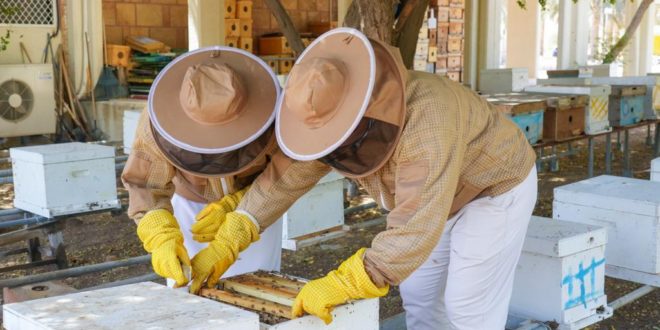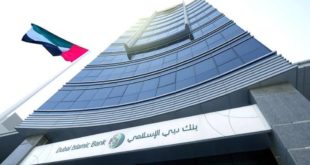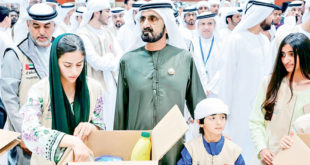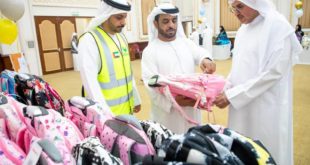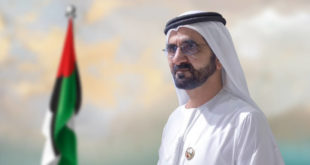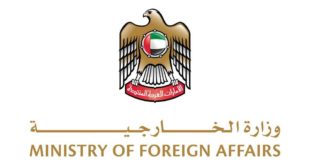Abu Dhabi, May 20/ The Abu Dhabi Agriculture and Food Safety Authority, with the support and sponsorship of His Highness Sheikh Mansour bin Zayed Al Nahyan, Vice President, Deputy Prime Minister, Minister of the Presidential Court, and Chairman of the Authority’s Board of Directors, adopts an ambitious program to develop and sustain beekeeping and honey production in the Emirate of Abu Dhabi, based on studies. And scientific and applied research to develop the best methods and practices appropriate to the environment of the UAE.
On the occasion of World Bee Day, which falls on May 20 of each year, and is held this year under the slogan “We are committed to protecting bees in agricultural production and pastures for pollinators”, the Abu Dhabi Agriculture and Food Safety Authority announced the start of production of queens of the eighth generation of the Emirati bee breed developed by the authority as part of the development project and the sustainability of beekeeping and honey production.
Engineer Saeed Ali Al Yamahi, Director of Research and Development Department at the Abu Dhabi Authority for Agriculture and Food Safety, said: The development of the Emirati bee breed is the main pillar for the sustainability of beekeeping in the country because it depends on the development and production of queen bees that can adapt to the environment and climate of the UAE.
He explained that the Abu Dhabi Authority for Agriculture and Food Safety has achieved unprecedented achievements in this field, as an Emirati bee breed has been developed that is characterized by the small size of worker bees and its activity in collecting nectar, and increasing its efficiency in honey production with progress in breeding generations, and the queens are highly active in laying eggs and producing Excellent incubation patterns, in addition to being well adapted to the local environmental conditions. Queens have been bred and produced until we have reached the eighth generation today.
He added, “During the past year 2022, more than 3,079 queens were produced, and more than 2,700 queens were distributed to 90 Emirati beekeepers, with the aim of supporting beekeepers and honey production, and motivating more beekeepers to enhance the efficiency and sustainability of this vital sector.”
He mentioned that beekeeping and honey production represent one aspect of sustainable agricultural development that supports the food security system, as honey is an important food product because of its great nutritional benefits, in addition to the environmental importance of beekeeping to ensure the ecosystem through the contribution of bees to the pollination process associated with reproduction. Plants and trees, and pollination has a positive impact on the environment in general as it helps maintain biodiversity and ecosystems on which agriculture depends and is needed by a wide variety of plants. Bees and other pollinators provide an important service in ensuring the transport of pollen and thus the reproduction of many cultivated and wild plants.
He pointed out that the Authority relies on scientific laboratories and advanced technologies to diagnose diseases and pests of honey bees as part of the research and development activities provided by the Authority’s Kuwaitat Research Station in Al Ain, noting that the laboratory for diagnosing diseases and pests of honey bees has been provided with the latest technologies to detect the causes of bee diseases, and to qualify and train them. National cadres diagnose diseases and pests, assist beekeepers in detecting diseases in apiaries, and provide recommendations and technical advice necessary to combat these diseases and pests. The project has succeeded in proving the possibility of bee colonies continuing in the country throughout the year and adapting to the summer heat.
Engineer Saeed Ali Al Yamahi pointed out that the Authority is working on developing extension programs and plans that ensure the transfer of knowledge to beekeepers in all regions of the Emirate of Abu Dhabi, where the Honey Bee Breeding Unit provides guidance services to beekeepers and develops their knowledge of the latest methods and principles of honey bee breeding, and grafting larvae to raise and produce queens. Control and diagnosis of diseases and pests of bees, and improve the quality of production, in addition to building the capacities of national cadres in the fields of artificial insemination of queen bees.
 Media ININ Economy We Trust
Media ININ Economy We Trust

